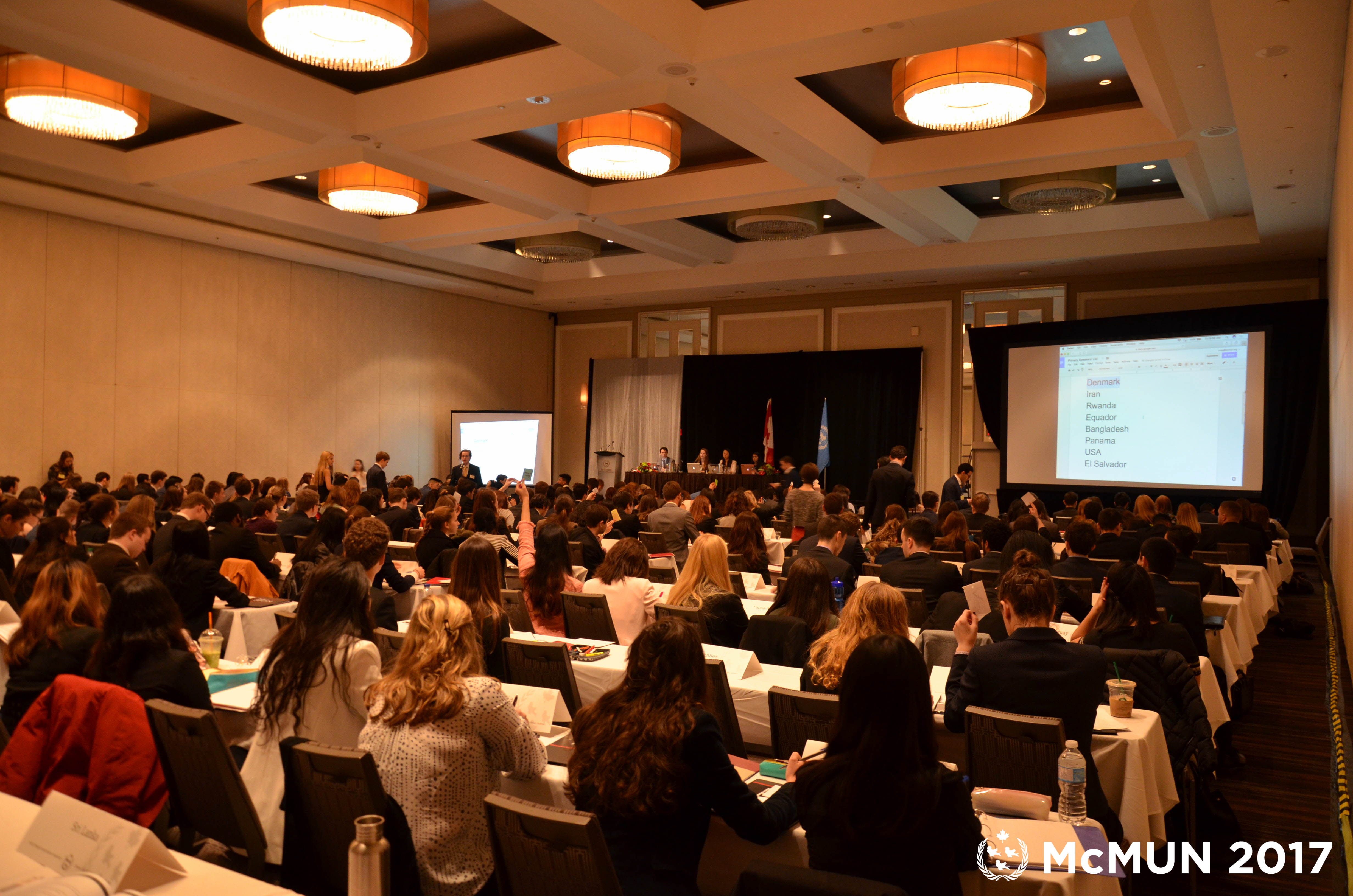6th Legal Committee Moves to Hold Peacekeepers Accountable

The United Nations showed the breadth of its specialized legal bodies, as the 6th Legal Committee commenced its second committee session with passionate efforts to invoke UN values on international affairs. The 143 delegates present this morning were quick to recognize both the role and the responsibility of the UN in solving international disputes, and the ways in which each nation can contribute to collectively achieve international goals. An overwhelming majority of delegates agreed to address the first topic of discussion, the matter Peacekeeping.
Preliminary speakers spoke in support of addressing the corruption and misconduct that has been demonstrated by several peacekeeping bodies in the international community, noting that this is surely an issue on which all representatives can agree. Among the compelling opening statements, the delegate from Somalia noted that this issue that has been occurring for far too long and must be addressed with a sense of urgency. Further, Somalia contended that failing to address the misconduct of peacekeepers is fundamentally undermines the UN and all that it stands for. These views were echoed by both Costa Rica and Mexico, who called the other delegates to recognize that “If we fail to address these fundamental issues, we are not better than those who are committing the crimes.”
After confirming a communal demand to address the issues of peacekeeping, the delegates advanced the session to a debate on the possible solutions to the transgressions that have occurred. South Korea initiated the debate, proposing a solution grounded on preventative and proactive measures to combat the currently failing retroactive approach. Among these preventative measures, the delegates called for an increase in training workshops and awareness for peacekeepers. Specifically, special attention was called to training peacekeepers in cultural sensitivity and sexual conduct training in order to prevent claims of ignorance by offenders.
Accountability was a key theme that dominated the discourse in this morning’s committee session. Host nations do not have a concrete method for holding peacekeepers accountable for their actions without the help of the international community. Assurance by all nations to prosecute offending parties is at the forefront of this debate. Without a concrete system of accountability upheld by all nations, these transgressions will undoubtedly continue.
While the 6th Legal Committee was in collective agreement that peacekeepers must to be held accountable for misconduct, delegates voiced some concerns about the role of state sovereignty in this context. Sovereignty is a highly contentious topic, as many nations are unwilling to sacrifice state sovereignty to the international community.
There is no doubt that the nations present today value their sovereignty. However, many countries identified sovereignty as a fundamental issue and a root cause of peacekeeping concerns. A collection of representatives contended that state sovereignty has exceeded its scope. North Korea pointed out that the immunity given to peacekeepers is allowing transgressions to occur without prosecution.
The 6th Legal Committee has recognized the urgency in addressing these issues in order to maintain the trust of the international community and to affirm the adequacy of the UN as an influential actor in the resolution of disputes. With the reputation of the UN at stake, delegates are keen to work as one to find a solution on a global scale.
